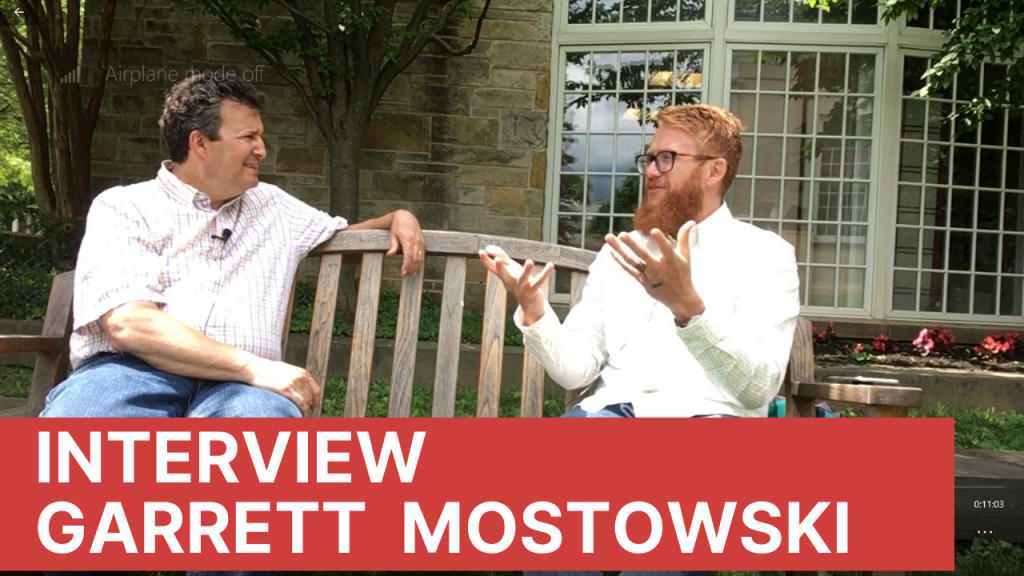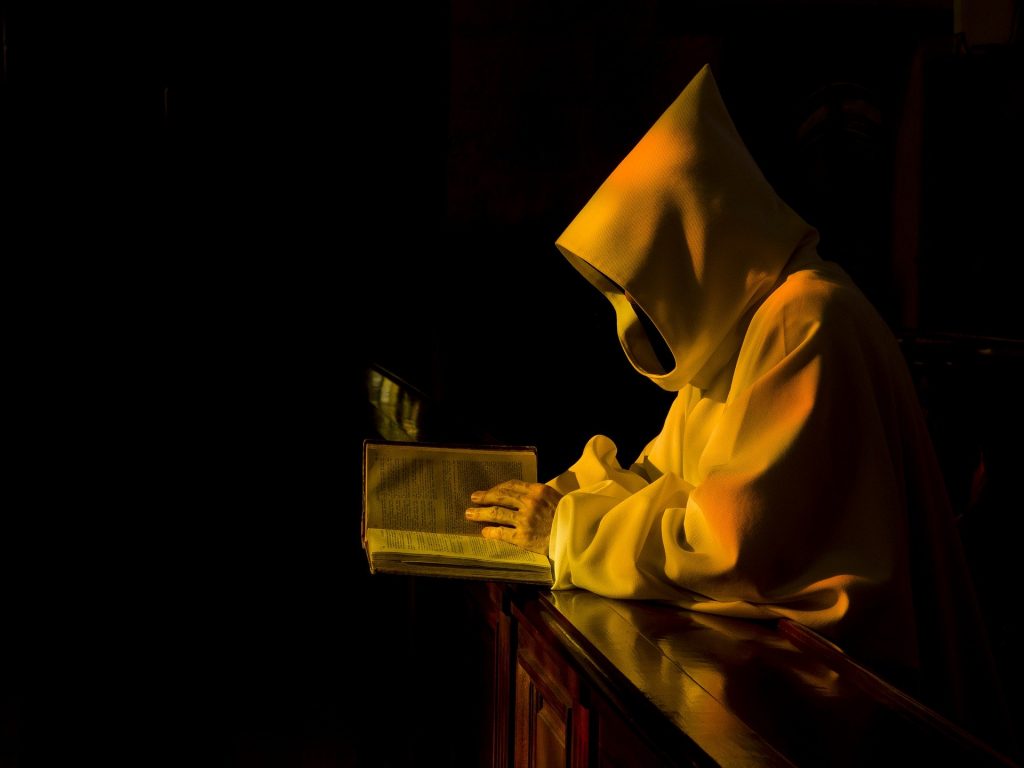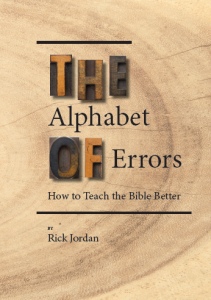
On Thursday, I will upload the video of my interview with Garret Mostowski, a pastor in Detroit. When I interviewed him, he was a student at Princeton Divinity School, leading a weekly “holy reading” group at Trinity Episcopal Church in Princeton. Holy reading (aka lectio divina) involves listening to the reading of a scripture passage multiple times while sitting in silence. Garrett told me how he became interested in this method of prayer and how he has been successful in leading persons to deepen their spiritual walk with this discipline. And by “people” I mean his youth group as well as 90-year-olds.
Silence: it’s complicated
Garrett said, “People have a complicated relationship with silence. I think we don’t want it. And I think we’re not taught to accept it. So that was key in my ministry with students, teaching them that it’s okay. It’s okay to sit in silence. It’s okay to feel those feelings. The key is not to judge them too much and not to judge yourself for whatever comes to you in those moments.”

God speaks through words – lyrics, sermons, Bible studies – and God also speaks through silence.
Silence communicates
Elijah experienced God’s presence in a way that eased his depression and graced him with a new commission. (1 Kings 19) The presence was not experienced through the wind, earthquake or fire – though God’s presence had certainly been experienced in those ways before (on Mt. Sinai and on Mt. Carmel, for example). This time, God choose to reveal his presence through “sheer silence” (NRSV). Silence allows us to know God in a way that rumbles and thunders and cracklings never do.

Some choose silence as a lifestyle. Trappist monks, like the late Thomas Merton, have silence as part of their monastic vows. Merton wrote in Conjectures of a Guilty Bystander that this does not mean that a “monk must never go out, never receive a letter, never have a visitor, never talk to anyone, never hear any news. He must distinguish what is useless and harmful from what is useful and salutary, and in all things glorify God.”
Silence that is Salutary (beneficial)
Do we take the effort to “distinguish what is useless and harmful from what is useful and salutary”? Sometimes we have no choice but to hear the racket around us (the music at a restaurant, the fire truck’s siren) and sometimes we choose to go to noisy places (the concert, the football game). But, are we also willing to choose the “useful and salutary” when we have the choice? Can we turn off (or leave off) the background noise of the TV set? Can we spend a few minutes in a silent space listening for nothing but our own breath and heartbeat? Can we allow God to speak to us in this intentional silence?
Silence is not just not talking
In Nurturing Silence in a Noisy Heart, Wayne E. Oates pointed out that the discipline of silence requires discernment: “It means to ‘choose between’ or ‘choose among’ the many sounds – noises, tones, words – what is useful in creating within us a clean heart. We put to the test all that we are about to say or not say; we are constantly choosing to listen and choosing what we will listen to. …Silence, then, is not just not talking. Silence is the discipline of choosing what to say and to what to listen. Nurturing silence, then, is the growth of the power of discernment as to what will be the focus of your attention, care and commitment.”
A Silence Challenge for the Teacher
Are we filling all of our teaching time with words or activities? What would happen if we created space in our lesson plan for intentional silence? What would happen if we asked questions that insist on time for silent reflection? What if we told a profound story or shared a pithy quotation, then offered the gift of silence? (“Let’s sit in silence with this for a while” is how one teacher friend modeled that for me.)
Silence following a teacher’s question says something. It may be saying, “that’s so obvious, it’s not worth my breath to form an answer.” It may be saying, “everyone knows what that answer is”, so no one answers. Or it may be saying, “that’s deep. I’ve never thought of it that way. Give me a little time to ponder and to imagine and to listen to God’s Spirit.”

